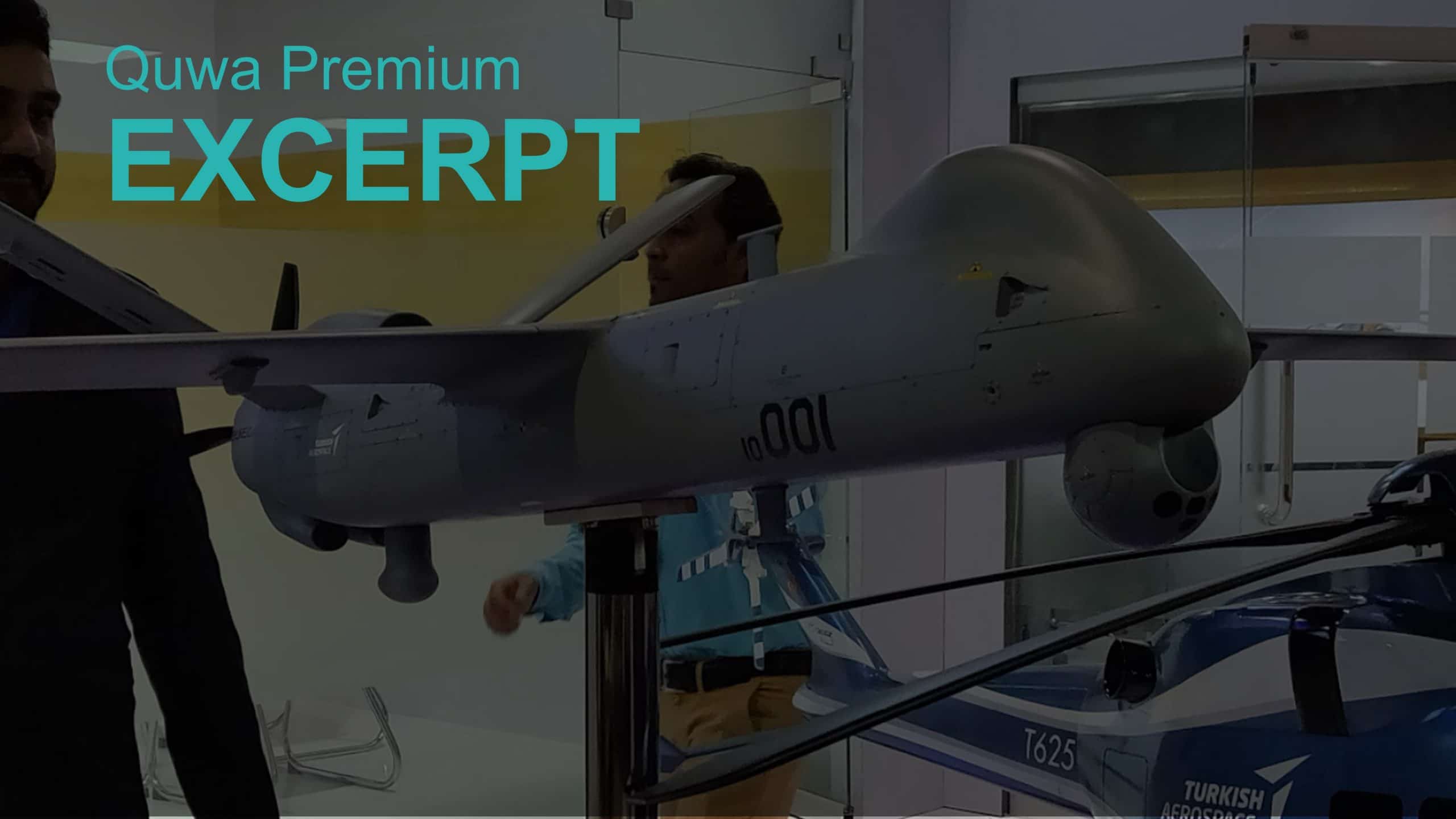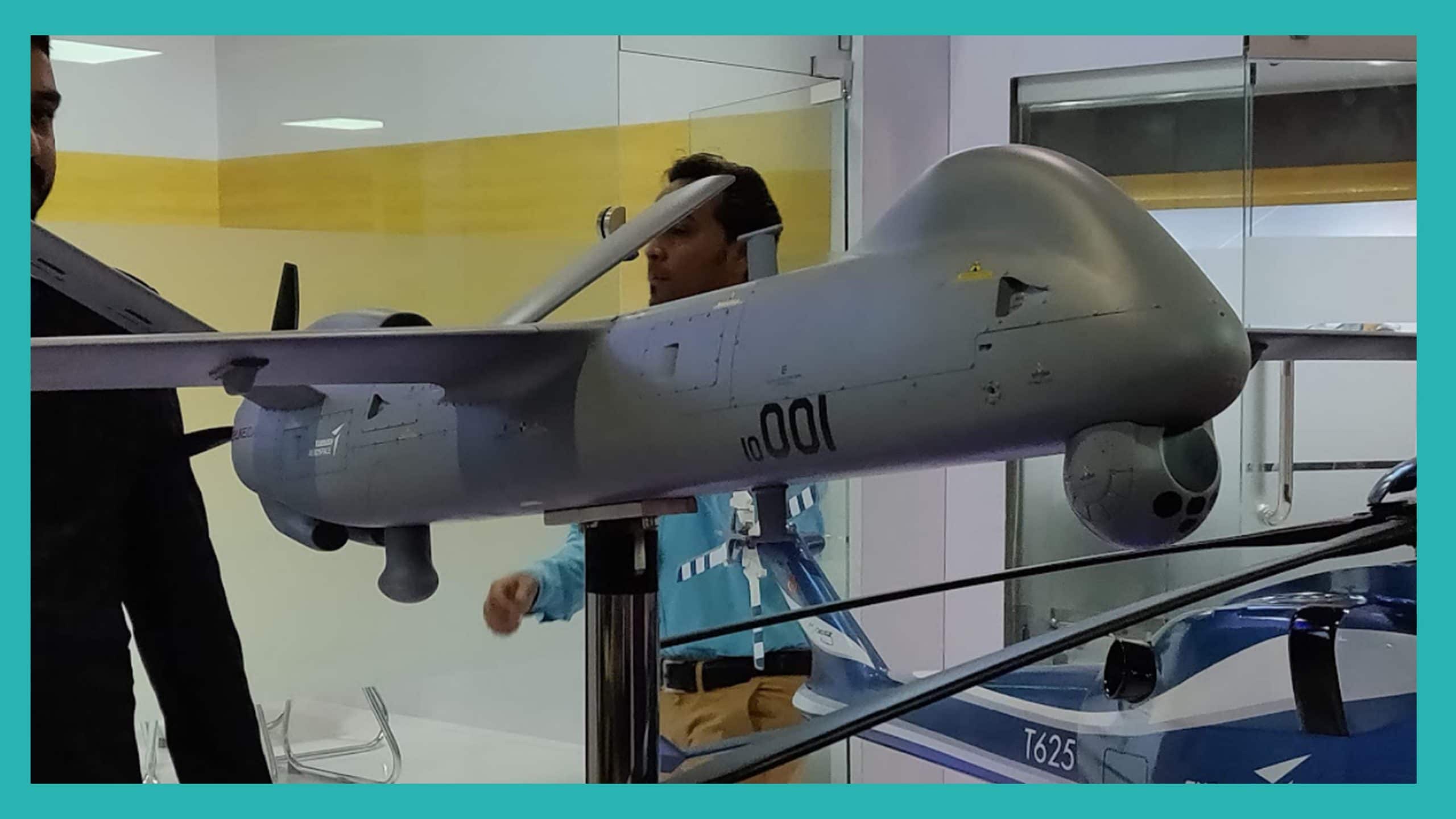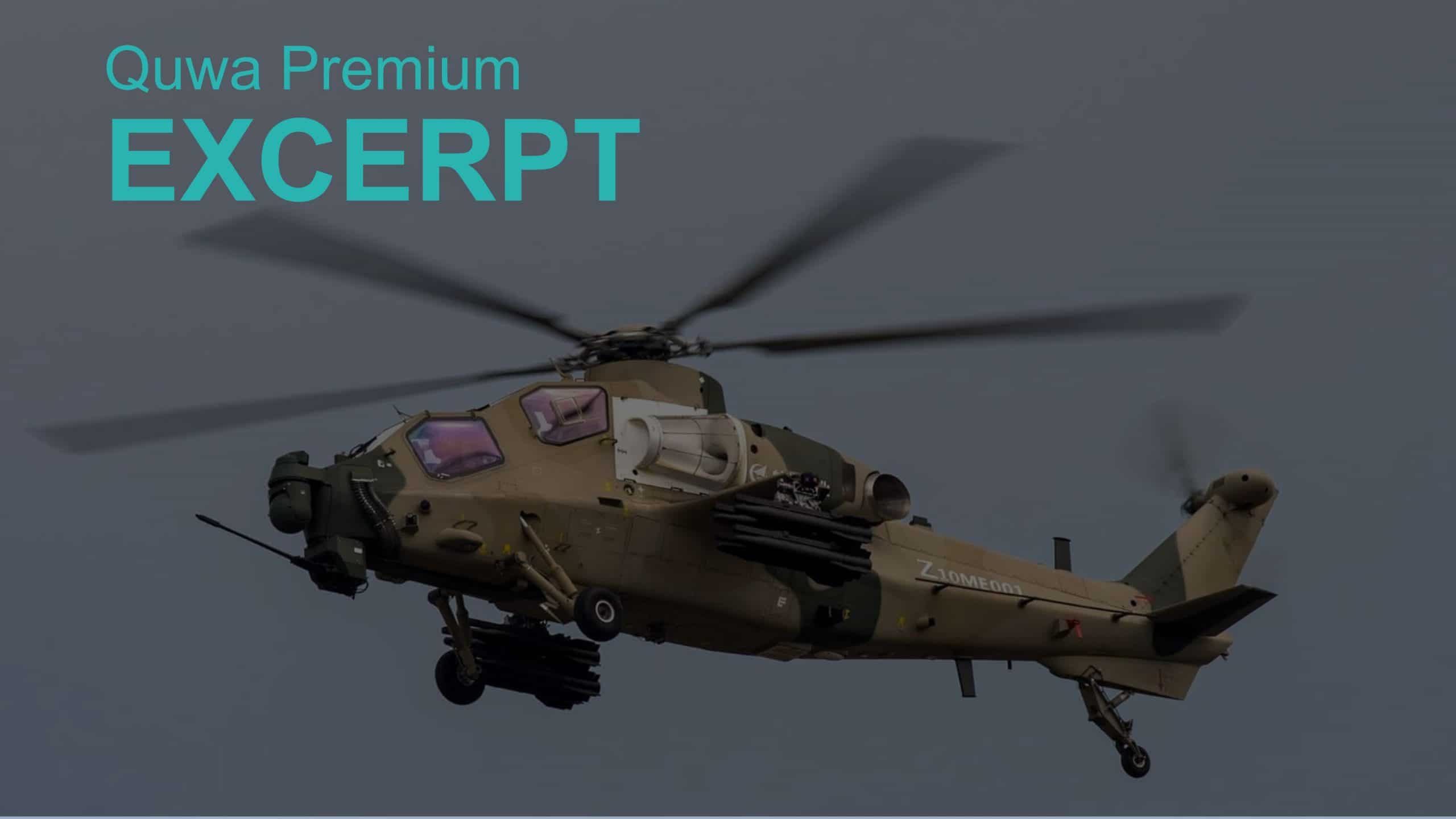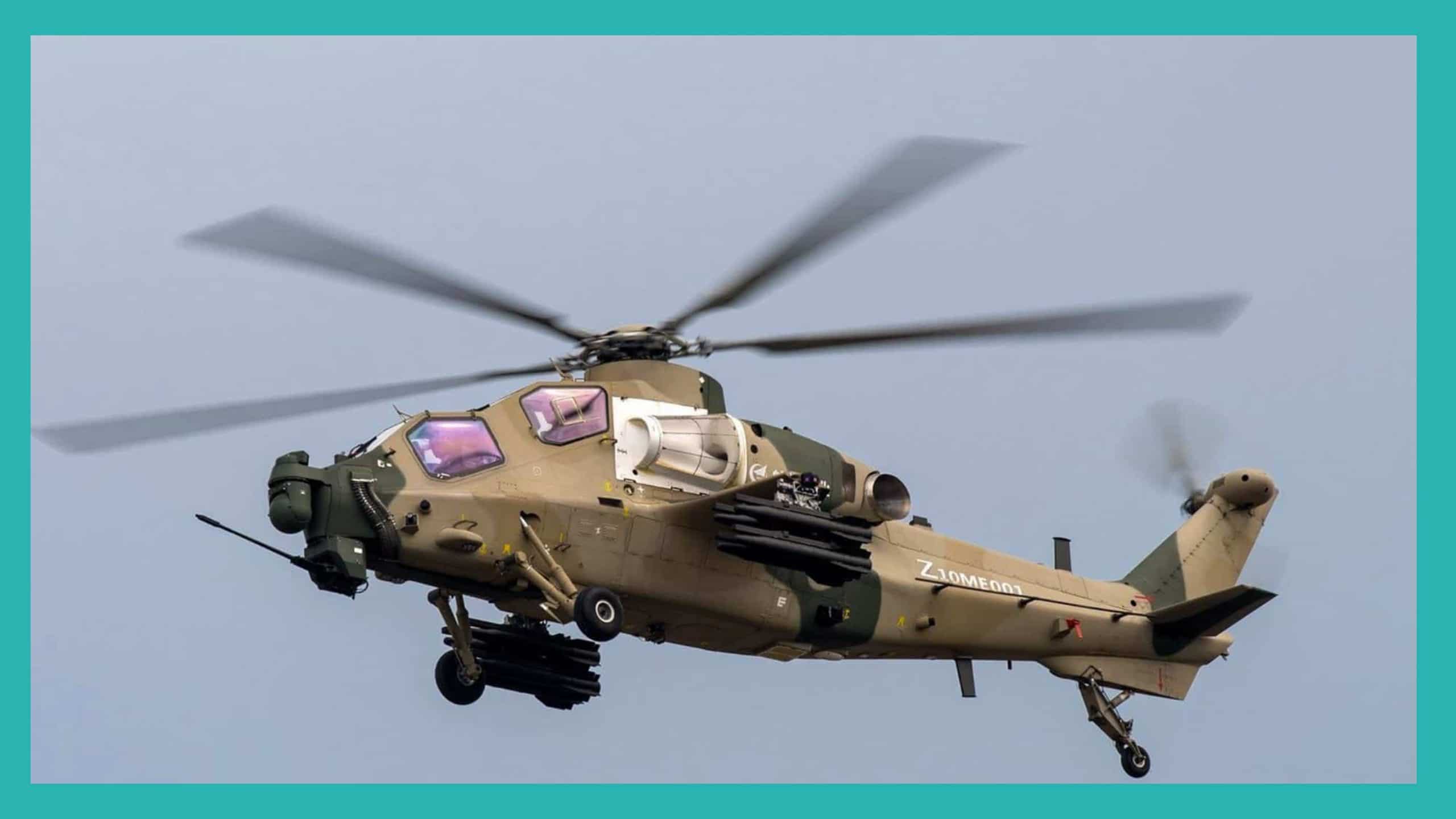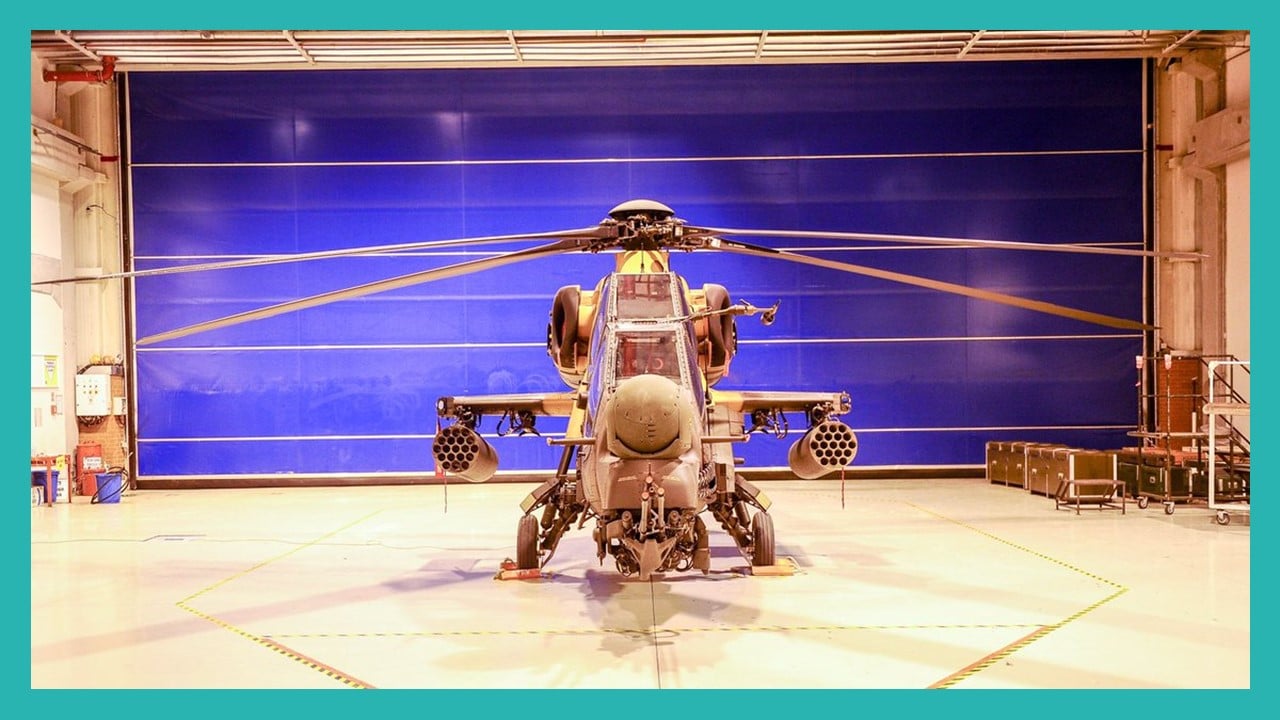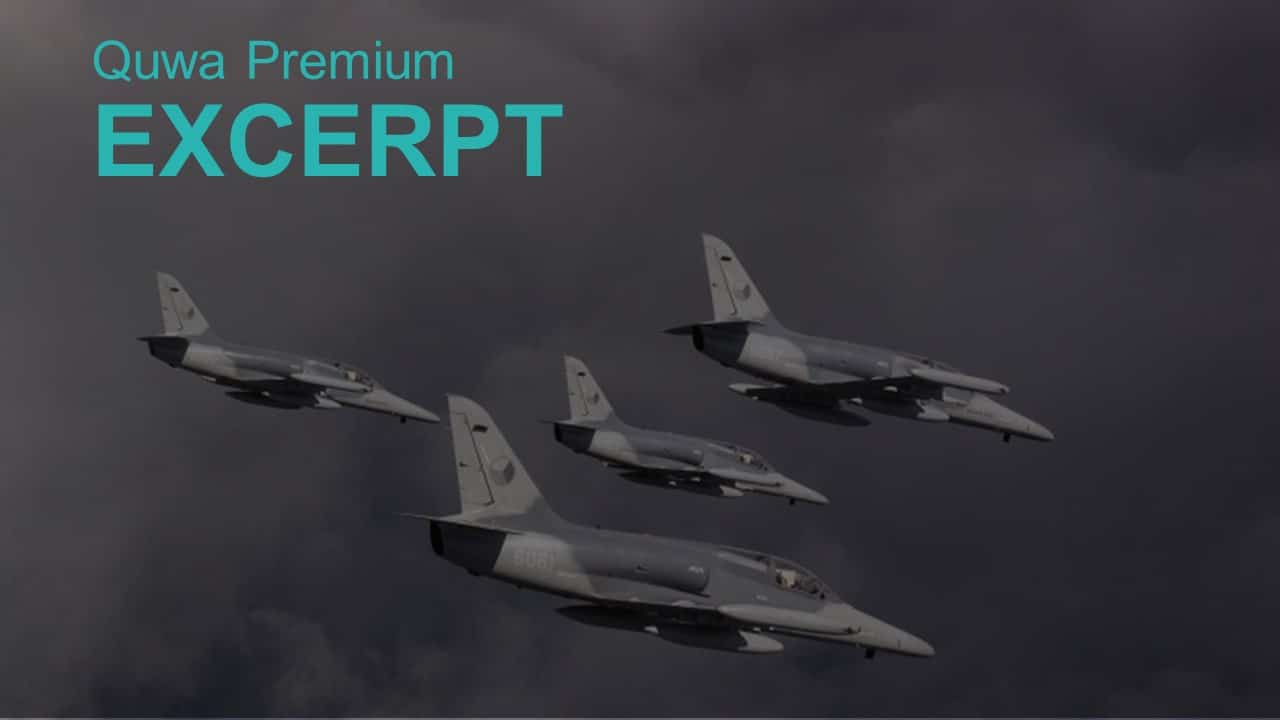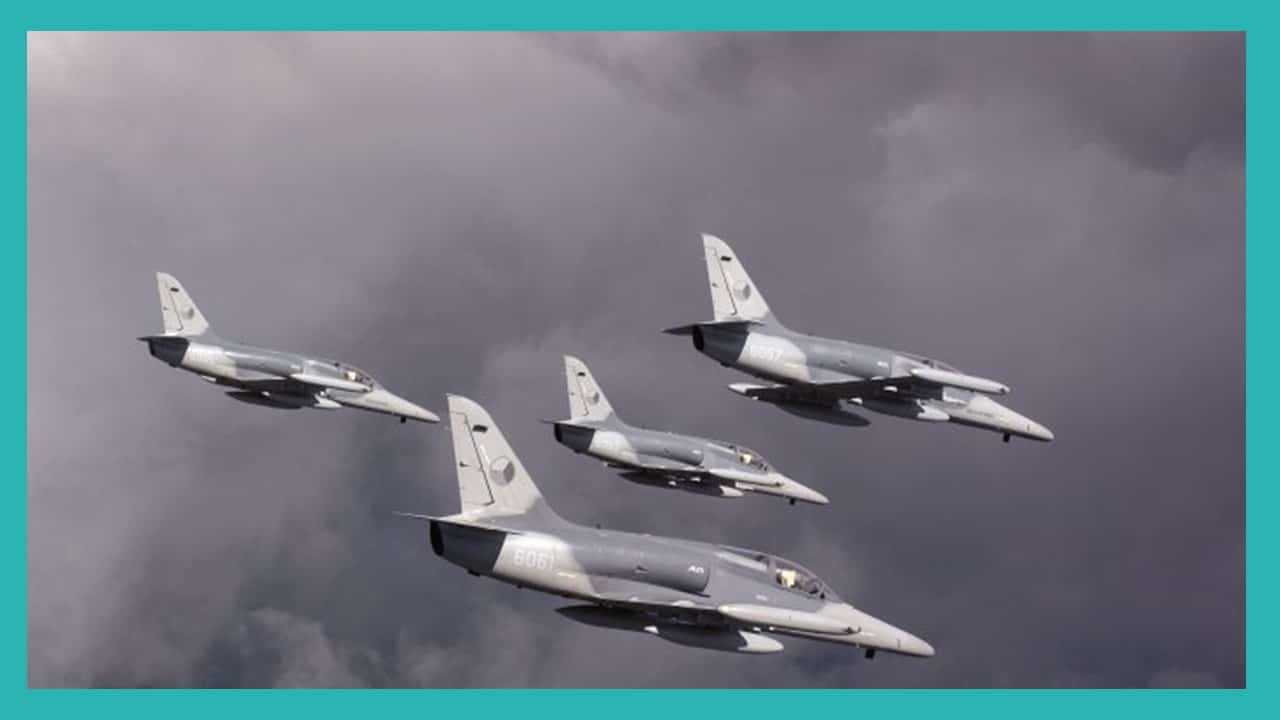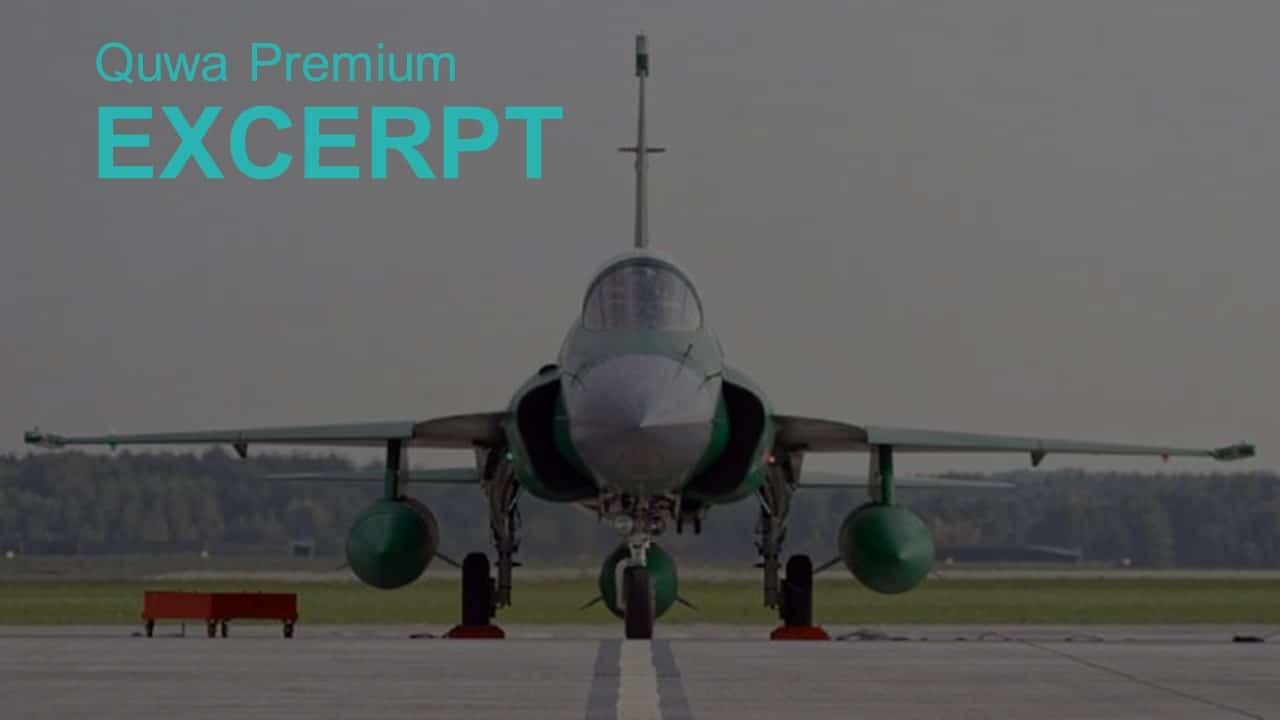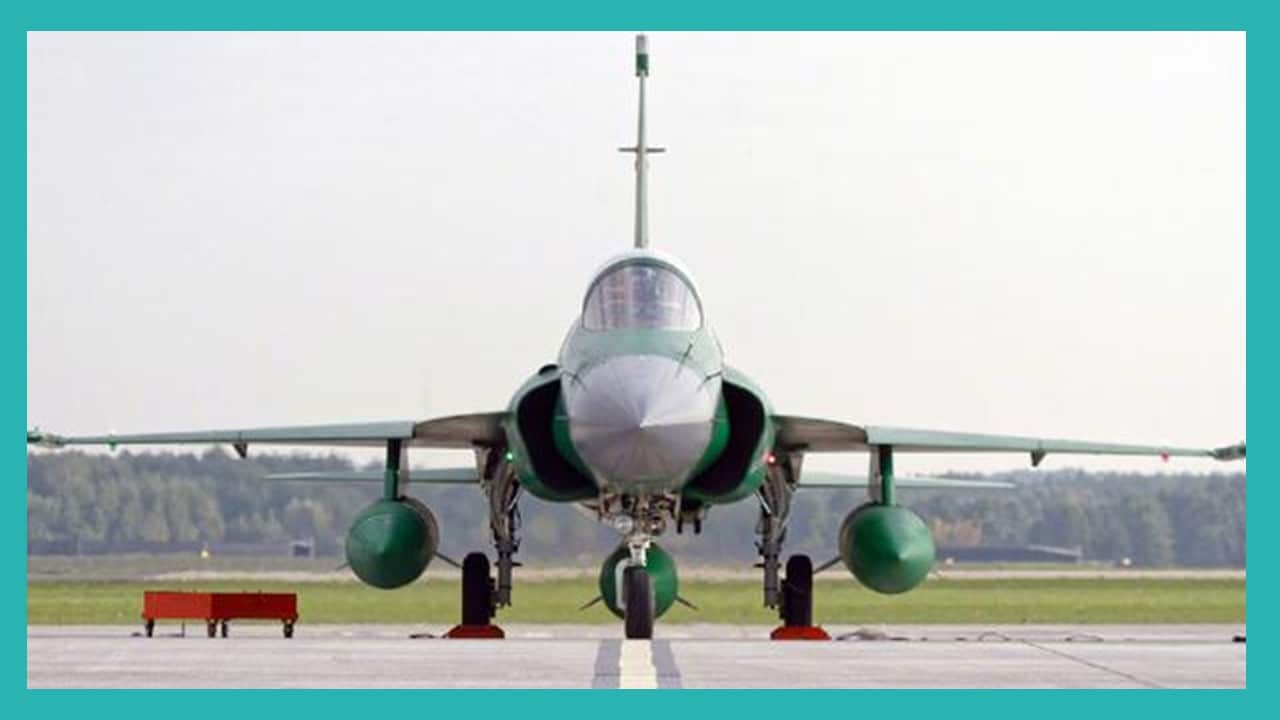The Pakistan Navy is interested in Turkish Aerospace’s Anka-S medium-altitude long-endurance (MALE) unmanned aerial vehicle (UAV). According to Turkish Aerospace, negotiations are underway.
The Pakistan Navy is interested in Turkish Aerospace’s Anka-S medium-altitude long-endurance (MALE) unmanned aerial vehicle (UAV). According to Turkish Aerospace, negotiations are underway.
Be it an improved sensor and avionics suite or the ability to deploy a miniature cruise missile and anti-submarine warfare (ASW) torpedo, the Aviation Industry Corporation of China (AVIC) is promising large capability gains with the newly revealed Z-10ME attack helicopter.
Be it an improved sensor and avionics suite or the ability to deploy a miniature cruise missile and anti-submarine warfare (ASW) torpedo, the Aviation Industry Corporation of China (AVIC) is promising large capability gains with the newly revealed Z-10ME attack helicopter.
Turkish Aerospace says T129 ATAK attack helicopter deliveries to Pakistan are still on-track; Pakistan is reportedly interested in the Anka UAV; the 12 Bell Helicopter AH-1Z built for Pakistan will be stored, but not re-routed.
Turkish Aerospace says T129 ATAK attack helicopter deliveries to Pakistan are still on-track; Pakistan is reportedly interested in the Anka UAV; the 12 Bell Helicopter AH-1Z built for Pakistan will be stored, but not re-routed.
The US shipbuilder Swiftships says that talks are ongoing with Pakistan for an undisclosed platform to build at Karachi Shipyards & Engineering Works (KSEW); the Pakistan Air Force (PAF) is now reportedly seeking a Lead-in-Fighter-Trainer (LIFT); Pakistan Aeronautical Complex (PAC) gearing up…
The US shipbuilder Swiftships says that talks are ongoing with Pakistan for an undisclosed platform to build at Karachi Shipyards & Engineering Works (KSEW); the Pakistan Air Force (PAF) is now reportedly seeking a Lead-in-Fighter-Trainer (LIFT); Pakistan Aeronautical Complex (PAC) gearing up…
The Aviation Industry Corporation of China (AVIC) has officially unveiled two new active electronically-scanned array (AESA) radars for use on the JF-17 Block-III. First, an updated variant of the NRIET KLJ-7A, which was originally revealed in 2016. Second, the air-cooled LKF601E AESA…
The Aviation Industry Corporation of China (AVIC) has officially unveiled two new active electronically-scanned array (AESA) radars for use on the JF-17 Block-III. First, an updated variant of the NRIET KLJ-7A, which was originally revealed in 2016. Second, the air-cooled LKF601E AESA…

